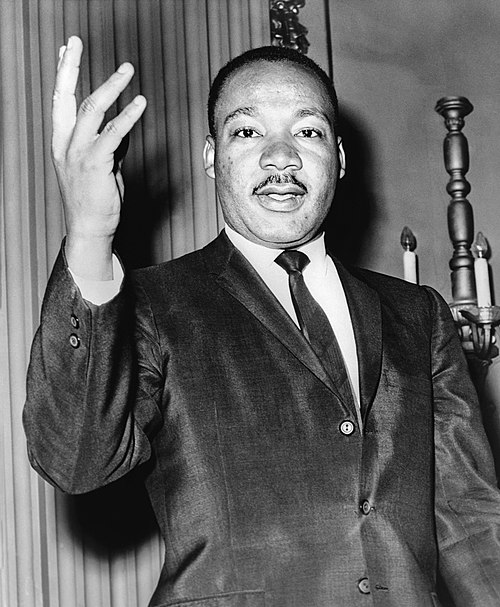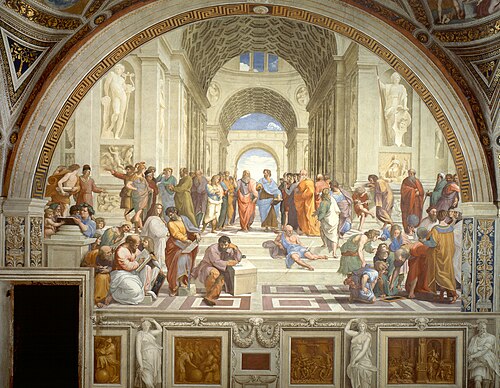Philosophynoun
The love of wisdom.
Philosophynoun
(uncountable) An academic discipline that seeks truth through reasoning rather than empiricism.
Philosophynoun
(countable) A comprehensive system of belief.
Philosophynoun
(countable) A view or outlook regarding fundamental principles underlying some domain.
Philosophynoun
(countable) A general principle (usually moral).
Philosophynoun
(archaic) A broader branch of (non-applied) science.
Philosophynoun
A calm and thoughtful demeanor; calmness of temper.
Philosophynoun
synonym of small pica|nodot=1.
Philosophyverb
To philosophize.
Philosophynoun
Literally, the love of, inducing the search after, wisdom; in actual usage, the knowledge of phenomena as explained by, and resolved into, causes and reasons, powers and laws.
Philosophynoun
A particular philosophical system or theory; the hypothesis by which particular phenomena are explained.
Philosophynoun
Practical wisdom; calmness of temper and judgment; equanimity; fortitude; stoicism; as, to meet misfortune with philosophy.
Philosophynoun
Reasoning; argumentation.
Philosophynoun
The course of sciences read in the schools.
Philosophynoun
A treatise on philosophy.
Philosophynoun
a belief (or system of beliefs) accepted as authoritative by some group or school
Philosophynoun
the rational investigation of questions about existence and knowledge and ethics
Philosophynoun
any personal belief about how to live or how to deal with a situation;
Philosophynoun
the study of the fundamental nature of knowledge, reality, and existence, especially when considered as an academic discipline.
Philosophynoun
a particular system of philosophical thought
Philosophynoun
the study of the theoretical basis of a particular branch of knowledge or experience
Philosophynoun
a theory or attitude that acts as a guiding principle for behaviour
Philosophy
Philosophy (from Greek: φιλοσοφία, philosophia, 'love of wisdom') is the study of general and fundamental questions, such as those about existence, reason, knowledge, values, mind, and language. Such questions are often posed as problems to be studied or resolved.
Religionnoun
(uncountable) The belief in a reality beyond what is perceptible by the senses, and the practices associated with this belief.
Religionnoun
(countable) A particular system of such belief, and the rituals and practices proper to it.
Religionnoun
(uncountable) The way of life committed to by monks and nuns.
Religionnoun
(countable) Any practice to which someone or some group is seriously devoted.
Religionnoun
Faithfulness to a given principle; conscientiousness.
Religionverb
Engage in religious practice.
Religionverb
Indoctrinate into a specific religion.
Religionverb
To make sacred or symbolic; sanctify.
Religionnoun
The outward act or form by which men indicate their recognition of the existence of a god or of gods having power over their destiny, to whom obedience, service, and honor are due; the feeling or expression of human love, fear, or awe of some superhuman and overruling power, whether by profession of belief, by observance of rites and ceremonies, or by the conduct of life; a system of faith and worship; a manifestation of piety; as, ethical religions; monotheistic religions; natural religion; revealed religion; the religion of the Jews; the religion of idol worshipers.
Religionnoun
Specifically, conformity in faith and life to the precepts inculcated in the Bible, respecting the conduct of life and duty toward God and man; the Christian faith and practice.
Religionnoun
A monastic or religious order subject to a regulated mode of life; the religious state; as, to enter religion.
Religionnoun
Strictness of fidelity in conforming to any practice, as if it were an enjoined rule of conduct.
Religionnoun
a strong belief in a supernatural power or powers that control human destiny;
Religionnoun
institution to express belief in a divine power;
Religion
Religion is a social-cultural system of designated behaviors and practices, morals, beliefs, worldviews, texts, sanctified places, prophecies, ethics, or organizations, that relates humanity to supernatural, transcendental, and spiritual elements; however, there is no scholarly consensus over what precisely constitutes a religion.Different religions may or may not contain various elements ranging from the divine, sacred things, faith, a supernatural being or supernatural beings or . Religious practices may include rituals, sermons, commemoration or veneration (of deities and/or saints), sacrifices, festivals, feasts, trances, initiations, funerary services, matrimonial services, meditation, prayer, music, art, dance, public service, or other aspects of human culture.




































